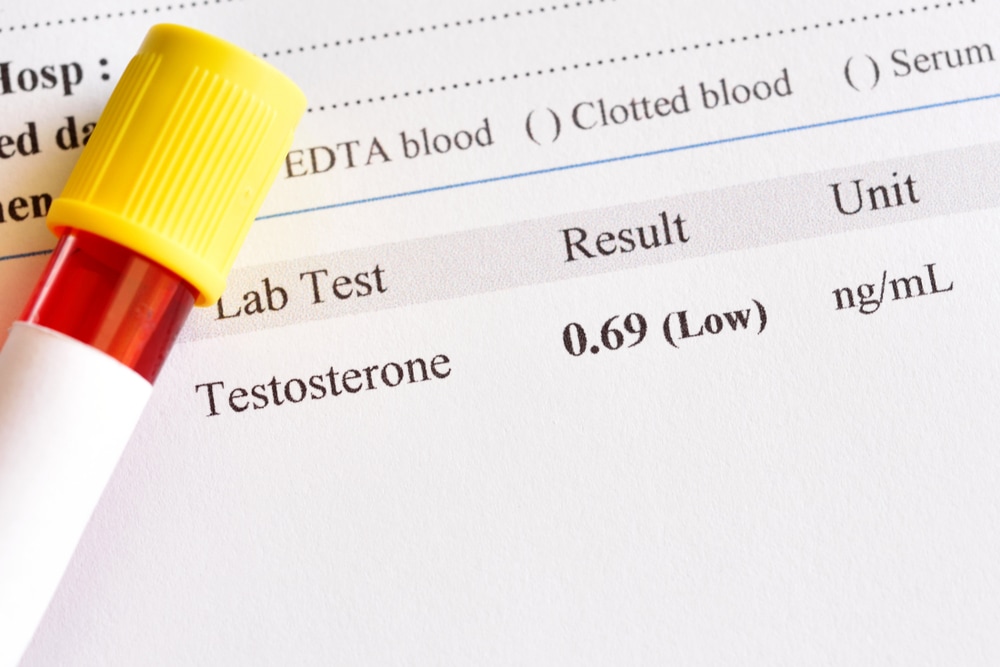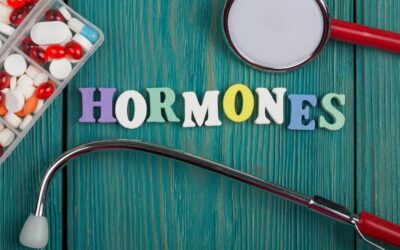No matter where you are in your experience with low testosterone, it can be incredibly helpful to learn more about the processes of diagnosis and treatment. Especially if you are just beginning to consider looking into the possibility of low-T, knowing what to expect can help you feel ready to take your first steps towards TRT.
In this guide, we will discuss what it’s like to get diagnosed with low-T; and, more specifically, what you should know about testosterone blood testing. You’ll learn exactly what is involved in the testing process and what comes after.
What Are the Symptoms of Low-T?
Not sure how to know if you need a testosterone test? The signs and symptoms of low testosterone can often be mistaken for the expected side effects of aging, but more often than not, feeling “old” is actually a treatable condition.
Here are some of the most common symptoms of a testosterone deficiency to look for:
- Low energy levels
- Weight gain
- Loss of muscle
- Excess fat, especially around the midsection
- Low sex drive
- Erectile dysfunction issues
- Thinning hair
- Trouble focusing/concentrating
- Loss of motivation
- Less stamina
- Feelings of anxiety or depression
- Mood swings
If you have even one of the symptoms listed above, scheduling a consultation is worth it.
How is Low Testosterone Diagnosed?
Getting a low-T diagnosis generally involves a few key components:
- Identifying symptoms
- Discussing health history and family health history
- A physical examination
- A testosterone blood test
If you are at a hormone clinic that tells you a blood test is unnecessary, we advise choosing another provider. A blood test is critical in measuring your T-levels, so your doctor can assess exactly how low they are and properly determine your dosage and treatment plan.
What to Do Before a Testosterone Blood Test
Patients often have questions surrounding the testosterone test, and we will address some of the most frequently asked ones here.
What Is the Best Time of Day to Get a Testosterone Test?
In the debate of morning vs. afternoon blood testing, experts often say it depends on the age of the patient:
- Men below the age of 45 should ideally aim to do testosterone blood work between 7 and 11 AM
- Men over the age of 45 can have blood work done any time of day.
The reasoning for this recommendation is the potential for the fluctuation in testosterone levels throughout the day, referred to as circadian testosterone fluctuation.
Can You Eat Before a Testosterone Blood Test?
Like many blood tests, the testosterone test is often suggested to be scheduled before the patient eats a large meal. It is possible that eating a full meal could lower testosterone levels, affecting the accuracy of results. However, this isn’t necessarily a rule set in stone – as always, check with your doctor.
What Not to Do Before a Testosterone Blood Test
Are you preparing for a testosterone deficiency test?
Here are a few things to avoid:
- Searching for “how to lower testosterone for a blood test” or “how to fair a testosterone blood test” in an effort to alter your results falsely
- Failing to get a second opinion if your first test results aren’t what you expected
- Trying an at-home testosterone test but not getting professional lab work done.
You Have Low-T – Now What?
So, you’ve completed the testosterone blood test, and your results show a deficiency -what do you do? The next step is to begin treating your low-T with testosterone replacement therapy, or TRT.
Testosterone therapy is designed to deliver a personalized dosage of testosterone to make up for any deficiency so that you can restore your body’s natural balance. It’s common for men to experience seriously declining T-levels as they age, and TRT is one of the best ways to treat the symptoms of low testosterone.
Where to Get a Testosterone Test Near You: Ehormones MD
If you’re considering getting testosterone lab work, make sure you start your journey with a trusted team of experts like Ehormones MD. We can help you coordinate convenient testing, so you can get your results quickly and waste less time working towards a solution.
Contact us to schedule your consultation for more information about testosterone testing near you!
Image by Jarun Ontakrai/ shutterstock.com





